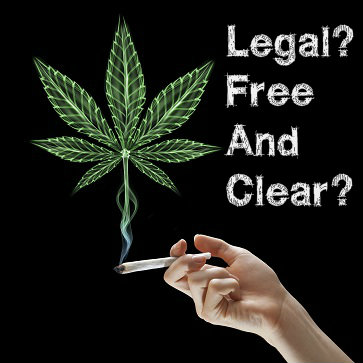What Are The Marijuana Regulations In Colorado?
In the November 2013 elections, Colorado voted to legalize recreational marijuana sales, and the first stores licensed to sell marijuana opened for business Jan. 1. Nevertheless, Colorado’s new laws do not mean that marijuana use is now free from regulation. On the contrary — the process of selling, purchasing and using marijuana is tightly controlled, especially as the state evaluates the manageability and success of legalization.
Selling And Purchasing Marijuana
 In addition to applying for and receiving an official license to sell recreational marijuana, there are other regulations by which retail locations have to abide. The state has mandated that marijuana retailers cannot open earlier than 8 a.m., or remain open after midnight. Many cities are setting even more restrictive hours; for example, Denver stores that sell recreational marijuana are required to close at 7 p.m.
In addition to applying for and receiving an official license to sell recreational marijuana, there are other regulations by which retail locations have to abide. The state has mandated that marijuana retailers cannot open earlier than 8 a.m., or remain open after midnight. Many cities are setting even more restrictive hours; for example, Denver stores that sell recreational marijuana are required to close at 7 p.m.
These stores also have to abide by security camera regulations. Each location is required to have a security camera pointed at the register with a picture that is clear and close enough for facial recognition.
Marijuana retailers are required to check the state-issued I.D. of customers to confirm their state of residence. They may sell up to one ounce of marijuana to Colorado residents, and one-quarter ounce to out-of-state residents.
State law does not permit any private individual to possess more than one ounce of store-bought recreational marijuana at a time. However, there are no regulations in place that prohibit people from purchasing marijuana from multiple stores in one day. One of the biggest concerns for law enforcement officers is how to prevent people from acquiring much more than the legal limit by visiting multiple stores and purchasing the full legal amount each time. This is part of the reason that stores are required to have security cameras through which individuals can be clearly identified.
The regulations about where customers are permitted to use their products are also fairly restrictive, and a bit confusing. Smoking marijuana is forbidden wherever cigarette smoking is banned, and any consumption of marijuana is forbidden in public areas like parks. Hotels and apartments are permitted to allow or ban smoking marijuana just as they can regulate cigarette smoking. Currently, it’s not clear whether private establishments like restaurants or coffee shops will be allowed to have discreet areas for marijuana use.
Consuming marijuana on federal land within Colorado is also forbidden. This includes most ski slopes, and all national parks and national forests. People who decide that these wide-open spaces seem ideal for discreetly consuming marijuana products should be aware that they would be subject to federal penalties if they were caught.
For the moment, privately owned residences in Colorado are the only places where recreational marijuana use is definitely permitted.
Some Cities Refuse To License Marijuana Sales
Under the new state regulations governing recreational marijuana, individual communities (cities and counties) in Colorado are allowed to refuse to license marijuana dealers and therefore prohibit recreational marijuana sales within their city or county limits.
Cities that have chosen to ban recreational marijuana sales include Colorado Springs, the state’s second largest city. Several other major cities, including Aurora and Boulder, are provisionally banning marijuana sales until local leaders make decisions about licensing regulations and monitoring. Many of these communities feel that the weeks between the November 2013 elections and the official start of marijuana sales on the first day of 2014 did not give them enough time to make decisions about intelligent implementation.
Some cities have not explicitly banned marijuana sales, but have created regulations that make it practically impossible for marijuana retailers to open. For example, at least one community requires prospective marijuana retailers to be so far away from any school property that they would be pushed to the very edges of town, where a new business would almost certainly fail.
Some of the approximately two-dozen cities that do not currently permit recreational marijuana sales have issued two-year moratoriums, and will reconsider the issue when those two years are up. Many of these communities want to wait to see how effective the state can be at regulating, licensing and monitoring establishments before potentially giving the go-ahead to marijuana sales.



